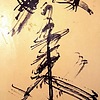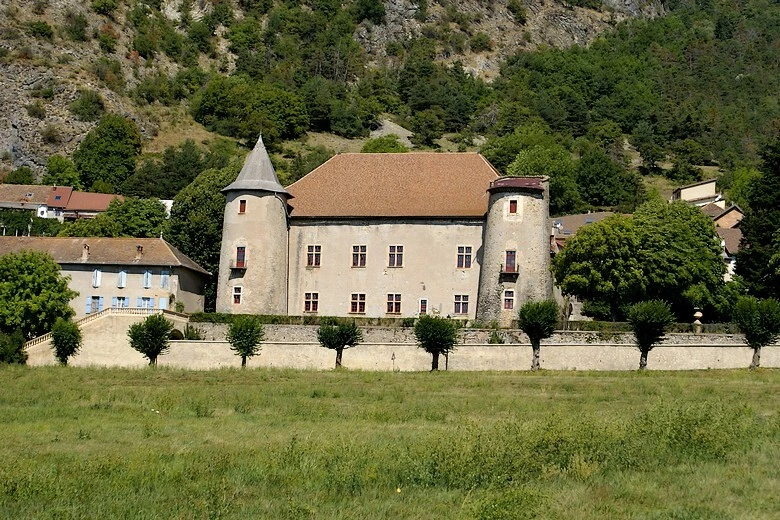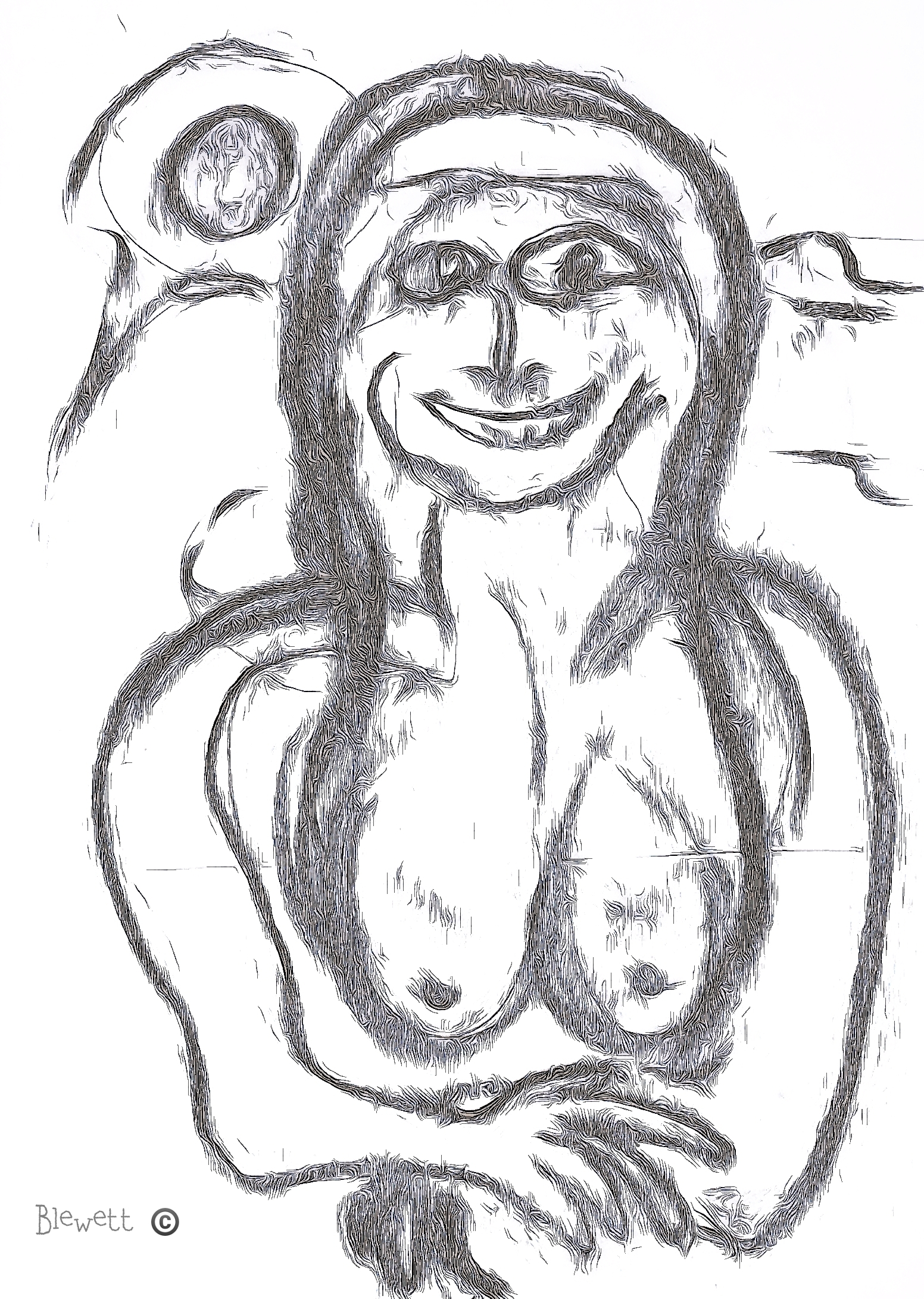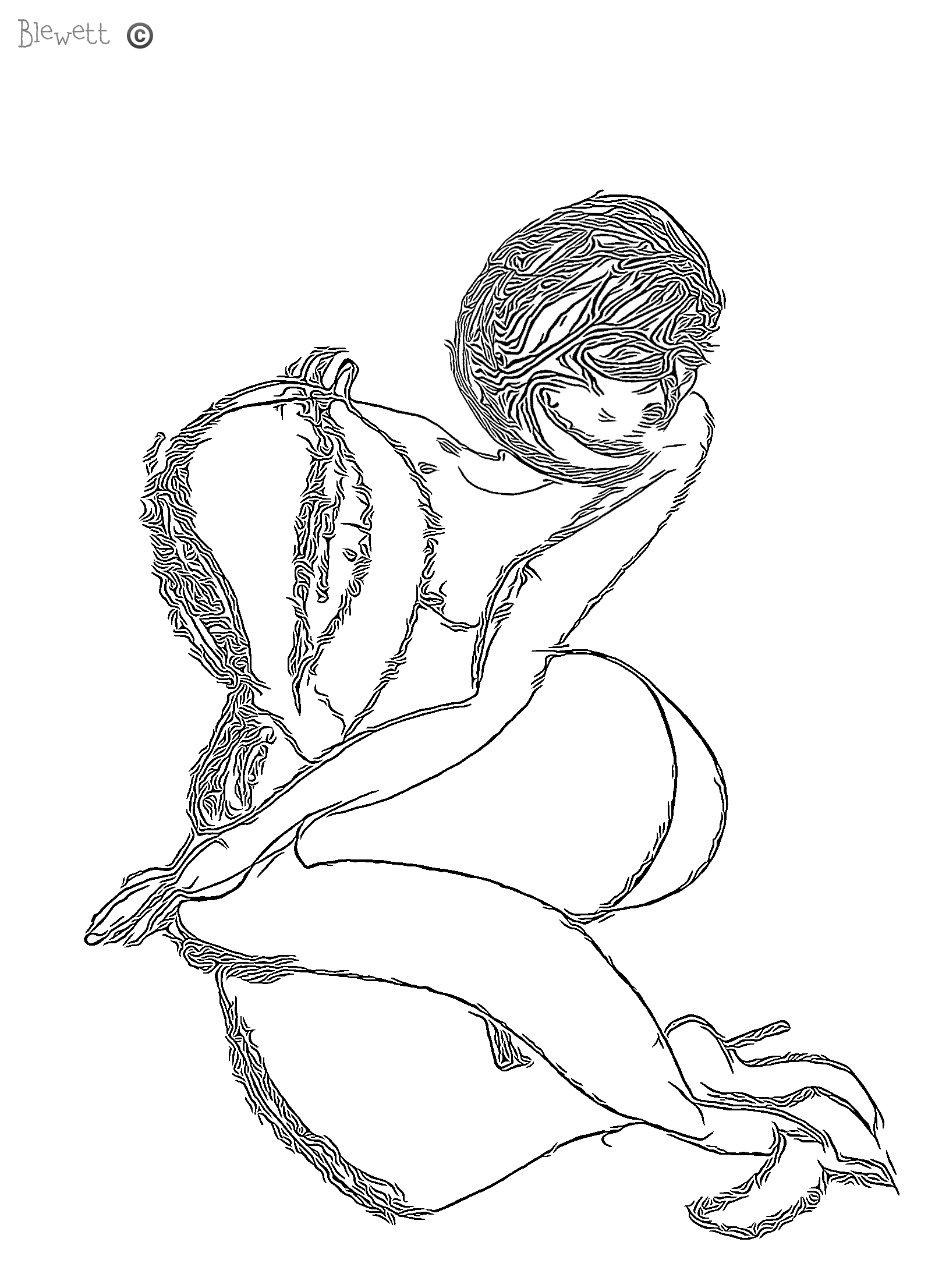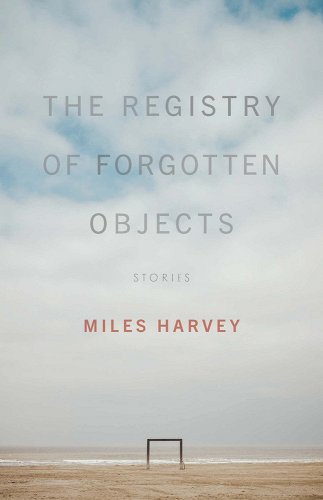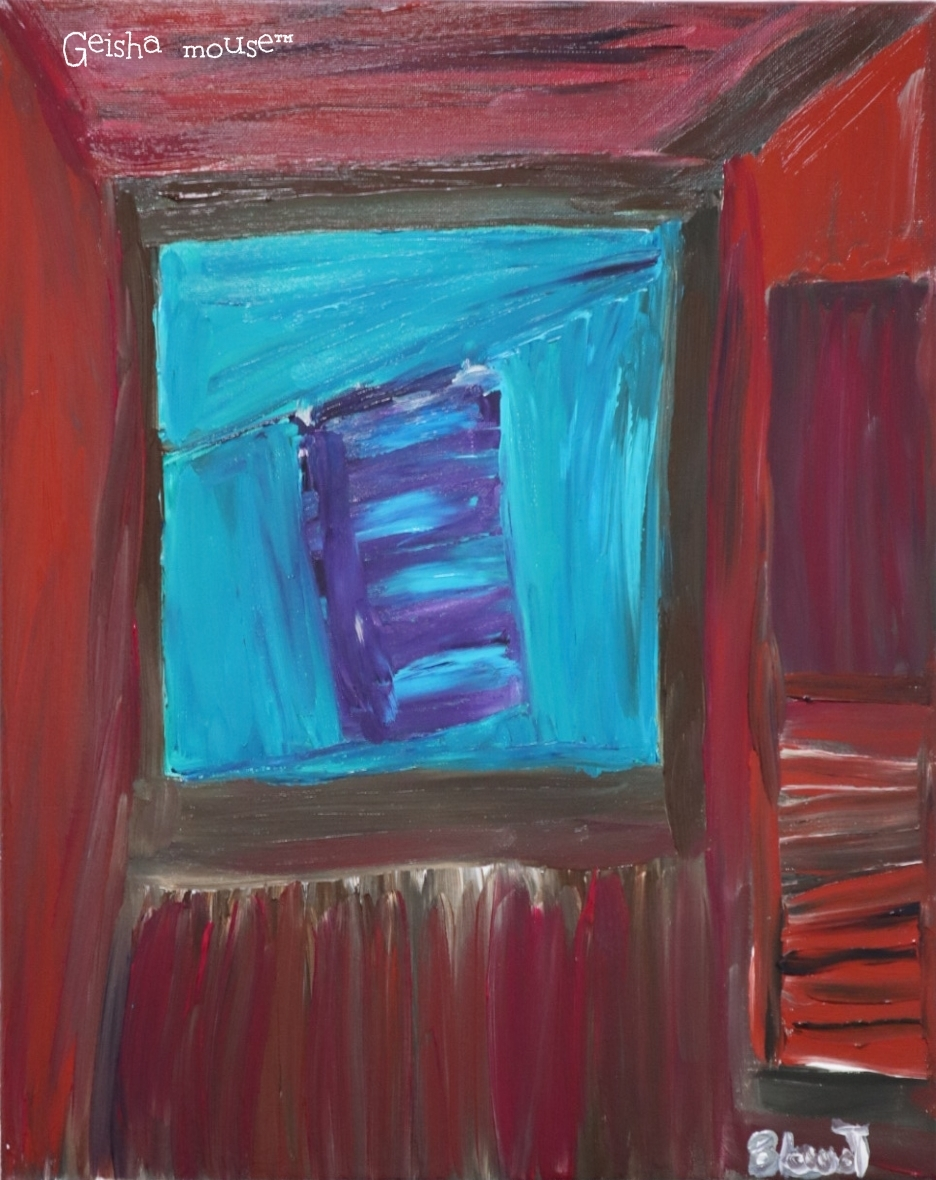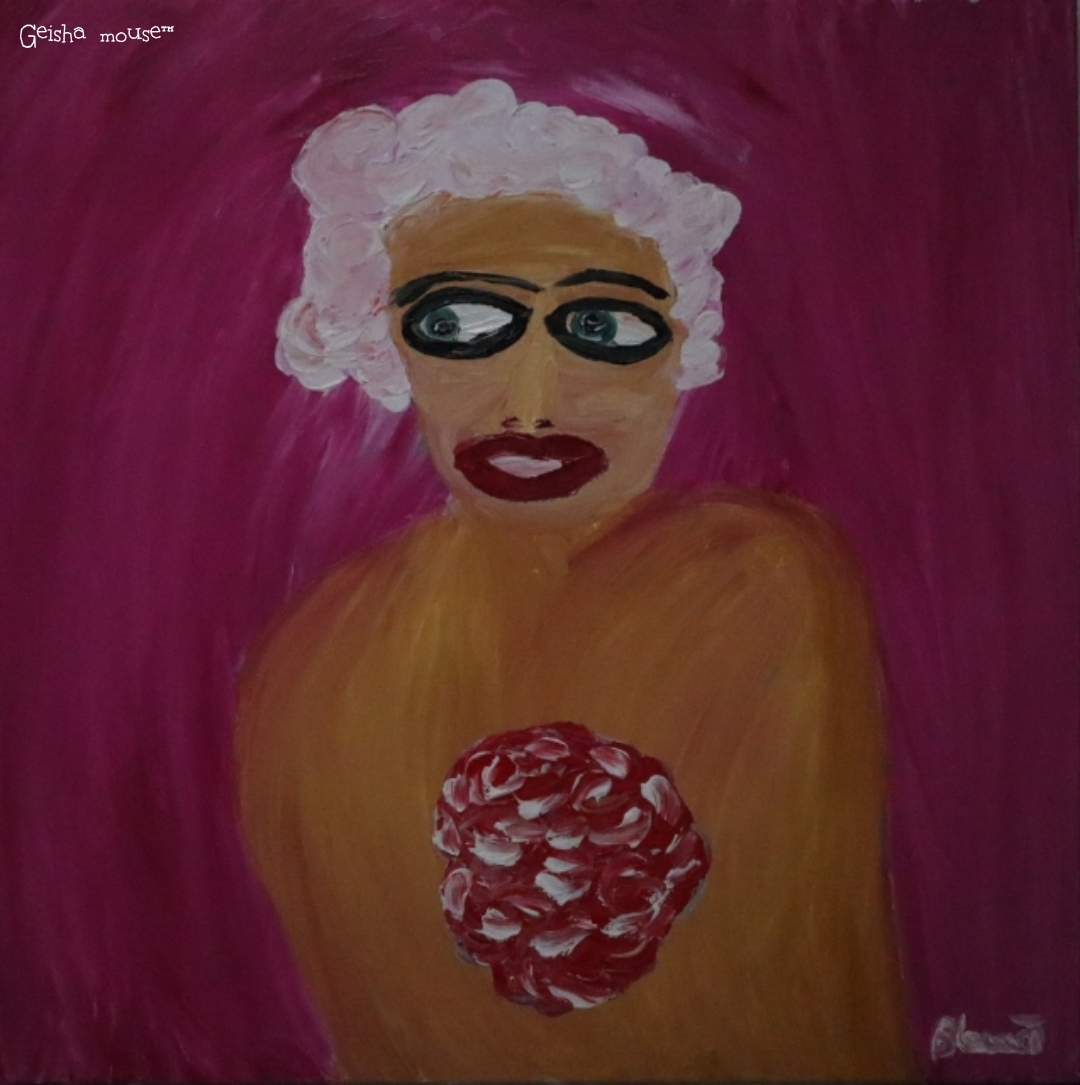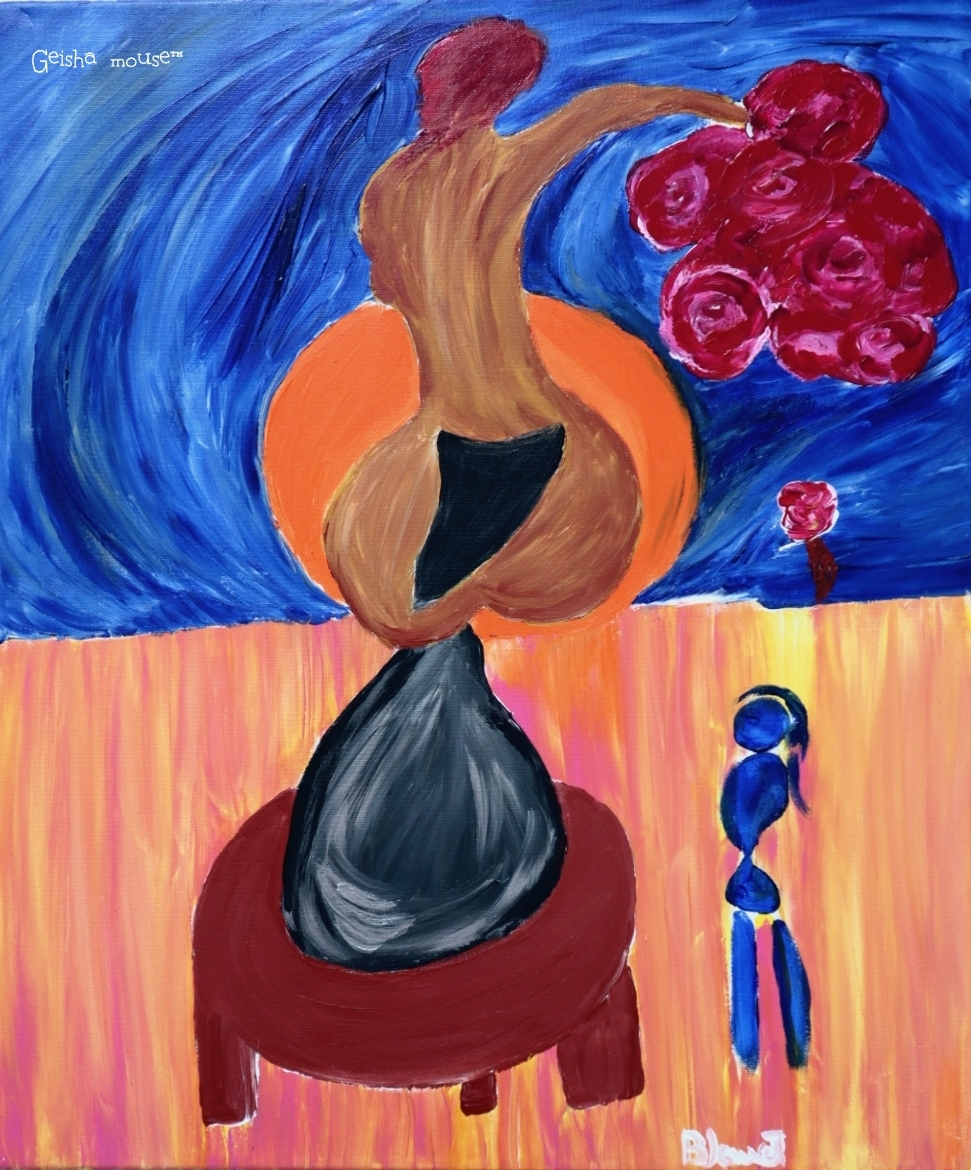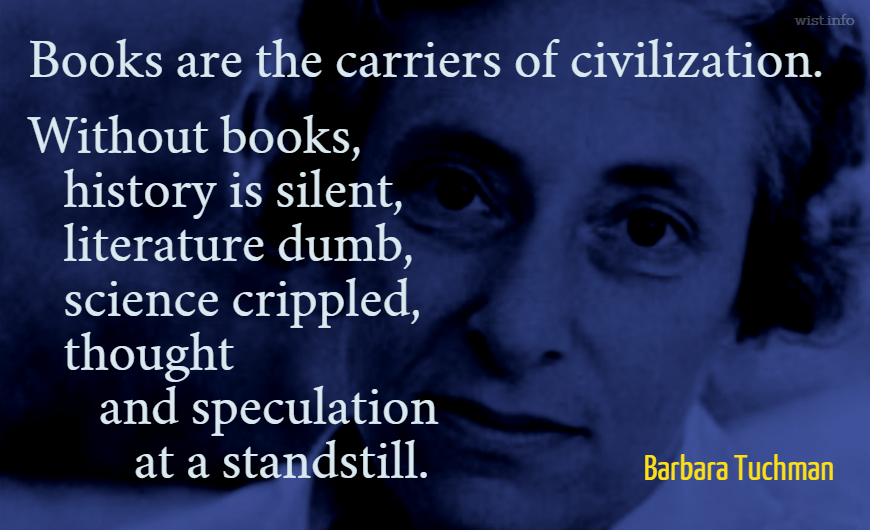LE CHÂTEAU DES FÉES (CADEAU DE NOËL) (français, english, castellano)
Anselme courbe l'échine, pas étonnant, à 103 ans il est perdu sur ce chemin tortueux qu'éclaire de loin en loin des lueurs fugaces.
Le voilà très vite navigant dans le brouillard, une gaze de brume s'estompe dévoilant les contours d'un château aux parois rehaussées
de scintillements.
Le pont levis se signale par 2 lampes aux couleurs changeantes.
Anselme franchit la herse, s'avance dans la cour.
Une voix gracieuse remplit l'espace :
Bienvenue au sieur Anselme, nous te connaissons et sommes fort aise de ta venue dans notre refuge, caché pour la plupart de tes congénères.
A la fin de la phrase 2 fées ailées virevoltantes se posent face à lui.
Une beauté brune aux ailes de papillon se présente:
Aglaë, fée de ce logis et voici Phytatë, membre de notre sororité.
Phytatë a des cheveux couleur d'émeraude et des ailes de libellule.
Celle ci croisant son regard le rassure:
N'aie aucune crainte, nous connaissons ton âme de poète, tu es notre invité d'honneur.
Prévenues de ton arrivée, un banquet nous attend au salon.
Toutes 2 le guident, l'installe dans un fauteuil replet.
Des robes bruissent, des talons marquent la cadence.
Anselme se retrouve entouré d'une jolie tablée d'une vingtaine de fées papotant à loisir sur la fête du jour.
Les mets sont succulents, le vin lui chamboule les sens.
Après une tisane chaleureuse, il se lève, bon pied bon œil, croise un miroir, s'arrête estomaqué.
Il a retrouvé son allure des 30 ans, le cheveu dru, les traits lisses, les muscles vigoureux et l'âme recueillie.
Aglaë lui sourit, tu as l'air bienheureux.
Le seul merci dont nous aurions besoin, c'est d'écouter tous ces contes qui ont traversé ton esprit.
Alors il se lance, les mots jaillissent en un torrent de facéties, d'espiègleries, de rondeurs suaves autant que surannées.
Anselme est très surpris, elles ont l'air subjuguées par ses récits qui se prolongent tard dans la soirée sans qu'elles manifestent la moindre fatigue.
Il s'interrompt pour bailler. Phytatë se lève.
Merci beaucoup pour cette soirée de bonheurs partagés, je vais te montrer ta chambre pour un sommeil réparateur peuplé de songes doux voire fiévreux.
La chambre est vaste, atmosphère ouatée, lit à baldaquins confortable.
Il s'endort, un rêve s'empare de lui.
Il est debout face à une armoire sculptée.
En l'ouvrant, des clefs de toutes sortes frémissent à son regard.
Une voix lui dit :
Choisis celle qui te plaît, elle décide de ton destin et du notre par la même occasion.
Une petite clef dorée et bien fine le captive.
A peine l'a-t-il saisie que la porte se referme.
D'un pas il se trouve face à un placard entre 2 tapisseries. La clef fonctionne.
Un parchemin enluminé trône sur un écritoire.
Il est écrit : code d'armement de la bombe atomique suivi de signes tarabiscotés.
Le rêve poursuit son chemin le guérissant des peurs accumulées dans les bévues de sa vie.
Au matin le parchemin est toujours dans sa main. Aglaë le salue :
Nous sommes ravies de ton choix, tu sais déjà où cela te mène.
Quand tout sera accompli, reviens vers nous passer des jours heureux.
Phytatë le ramène jusqu'au 1er arrêt de bus.
Anselme rentre chez lui, contacte wikileaks et leur donne le code d'armement atomique.
Le lendemain, les infos annoncent que wikileaks a reçu et publié les codes de tous les armements atomiques de la planète.
L'ONU se réunit séance tenante et adopte la motion suivante à l'unanimité :
Toutes les armes atomiques sont proscrites.
L'AIEA va faire le tour de toutes les capitales concernées pour les désarmer.
Anselme rit aux éclats et reprend derechef le chemin du château des fées.
@thierry3b2
#conte #ecriture #atelier #fees #chateau #historiette #cadeau #poesie #positif #mywork
THE CASTLE OF FAIRIES ( gift for chrismas time)
Anselme bends the spine, no wonder, at 103 years old he is lost on this tortuous path that illuminates from far away by fleeting lights.
Here he is very quickly navigating in the fog, a mist of gaze fades revealing the contours of a castle with raised walls
of flickering.
The drawbridge is signalled by 2 lamps with changing colors.
Anselme crosses the railing, advances into the courtyard.
A graceful voice fills the space:
Welcome to Monsieur Anselme, we know you and are very pleased that you have come to our refuge, hidden for most of your fellow men.
At the end of the sentence 2 flying fairies are standing in front of him.
A brown beauty with butterfly wings presents:
Aglaë, fairy of this house and this is Phytatë, member of our sorority.
Phytatë has emerald-colored hair and dragonfly wings.
The woman who crosses her eyes reassures him:
Have no fear, we know your soul of poet, you are our guest of honor.
We are warned of your arrival, and a banquet awaits us in the lounge.
All 2 guide him, installs him in a full armchair.
Robes rustle, heels mark the cadence.
Anselme is surrounded by a beautiful table of twenty fairies chatting at leisure on the day’s party.
The dishes are delicious, the wine is stirring his senses.
After a warm tea, he gets up, good foot good eye, crosses a mirror, stops stunned.
He has regained his 30-year-old look, the drab hair, the smooth lines, the vigorous muscles and the collected soul.
Aglaë smiles at him, you look happy.
The only thanks we need is to listen to all these stories that have crossed your mind.
Then he starts, the words spring into a torrent of jokes, mischief, roundness as soft as old-fashioned.
Anselme is very surprised, they seem to be overwhelmed by his stories that last until late in the evening without showing any fatigue.
He stops to yawn. Phytatë gets up.
Thank you very much for this evening of shared happiness, I will show you your room for a restful sleep populated by sweet dreams or feverish.
The room is spacious, quilted atmosphere, comfortable canopy bed.
He falls asleep, a dream takes hold of him.
He is standing in front of a carved cabinet.
Opening it, keys of all kinds tremble at his gaze.
A voice says to him:
Choose the one you like, it decides your fate and ours at the same time.
A small golden and fine key captivates him.
He barely grasped it, the door closes.
One step it is in front of a closet between 2 tapestries. The key works.
A illuminated parchment sits on a writing pad.
It is written: code of the atomic bomb followed by tarabissime signs.
The dream continues its path healing him from the fears accumulated in the mistakes of his life.
In the morning the parchment is still in his hand. Aglaë greets him:
We are delighted with your choice, you already know where it leads.
When all is accomplished, come back to us for happy days.
Phytatë takes him to the first bus stop.
Anselme goes home, contacts wikileaks and gives them the code of atomic weapons.
The next day, news reports that wikileaks has received and published the codes for all the atomic weapons on the planet.
The UN meets immediately and unanimously adopts the following motion:
All nuclear weapons are proscribed.
The IAEA will tour all the capitals concerned to disarm them.
Anselme laughs and takes the path to the fairies' castle again.
@thierry3b2
#story #writing #workshop #fairies #castle #gift #poetry #positive #mywork
El castillo de las hadas (regalo para navidad)
Anselmo curva el lomo, no muy sorprendente, a los 103 años se pierde en este camino tortuoso que ilumina de lejos las luciérnagas fugaces.
Allí, rápidamente navegando en la niebla, una gasa de niebla se desvanece revelando los contornos radiantes de un castillo con paredes realzadas por parpadeos.
El puente levadizo se caracteriza por 2 lámparas de colores cambiantes.
Anselmo cruza la reja, se acerca al patio.
Una voz graciosa llena el espacio:
Bienvenido al señor Anselmo, te conocemos y estamos muy contentas de tu llegada a nuestro refugio, escondido para la mayoría de tus congéneres. Al final de la frase 2 hadas aladas giran frente a él.
Una belleza morena con alas de mariposa se presenta:
Aglaë, hada de esta casa y esta es Phytatë, miembro de nuestra fraternidad.
Phytatë tiene cabello de color esmeralda y alas de libélula.
La mirada de ella le tranquiliza:
No tengas miedo, conocemos tu alma de poeta, eres nuestro invitado de honor.
Nos espera un banquete en el salón.
Las dos lo guían, lo instalan en una silla repleta.
Los vestidos rugen, los tacones marcan el ritmo.
Anselme se encuentra rodeado por una bonita mesa de unas veinte hadas que charlan a su antojo sobre la fiesta del día.
Los platos son deliciosos, el vino le revuelve los sentidos.
Después de un té de hierbas caliente, se levanta, buen pie ojo, se cruza con un espejo, se detiene aturdido.
Ha recuperado su aspecto de los 30 años, el pelo dru, los rasgos lisos, los músculos vigorosos y el alma recogida. Aglaë le está sonriendo.
Te ves muy feliz.
El único agradecimiento que necesitamos es escuchar de tu boca todos los cuentos que han pasado por tu mente .
Entonces se lanza, las palabras brotan en un torrente de bromas, travesuras, redondeces suaves tanto como anticuadas.
Anselme está muy sorprendido, parecen subyugadas por sus relatos que se prolongan hasta bien entrada la noche sin que manifiesten la menor fatiga. Se detuvo para bostezar.
Phytatë se está levantando.
Muchas gracias por esta noche de felicidad compartida, te mostraré tu habitación para un sueño reparador poblado de sueños dulces incluso febriles.
La habitación es amplia, ambiente mullido, cama con dosel cómodo.
Se duerme, un sueño se apodera de él.
Está de pie frente a un armario tallado.
Al abrirla, las llaves de todo tipo tiemblan a su mirada.
Una voz le dice:
Elige la que te guste, ella decide tu destino y el nuestro al mismo tiempo.
Una pequeña llave dorada y fina lo cautiva.
Apenas lo agarró, la puerta se cerró.
De un paso se encuentra frente a un armario entre dos tapices.
La llave está funcionando.
Hay un pergamino iluminado sobre un escritorio.
Está escrito: código de armamento de la bomba atómica seguido de signos tarabiados.
El sueño continúa su camino curándolo de los miedos acumulados en los errores de su vida.
Por la mañana el pergamino sigue en su mano.
Aglaë le da la bienvenida:
Estamos encantados con tu elección, ya sabes a dónde te lleva.
Cuando todo esté hecho, vuelve a pasar días felices.
Phytatë lo lleva al primer autobús.
Anselme vuelve a casa, contacta a Wikileaks y les da el código de armamento atómico.
Al día siguiente, las noticias anuncian que Wikileaks ha recibido y publicado los códigos de todas las armas atómicas del planeta.
Las Naciones Unidas se reúnen a continuación y aprueban por unanimidad la siguiente moción:
Todas las armas atómicas están prohibidas.
El OIEA visitará todas las capitales pertinentes para desarmarlas.
Anselmo se ríe a carcajadas y retoma el camino del castillo de las hadas.
@thierry3b2
#cuento #escritura #taller #hada #castillo #regalo #poesia #mitrabajo #positivo



